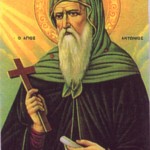We will continue our study of the history of the Coptic Language in Egypt. This is part two which covers up to the 13th century.
BEGIN (CE:604a-607a) COPTIC LANGUAGE, SPOKEN.
With the Arab conquest of Egypt in the seventh century, use of the Arabic language began to appear among the Egyptians. However, Copts started writing their own theological treatises in Arabic in the thirteenth century. Coptic as a spoken language of the country folk persisted in numerous regions of Upper Egypt to the end of the sixteenth century and the beginning of the seventeenth.
The factors at work in the gradual disappearance of the Coptic language may be enumerated as follows:
1. The decision in 706 of ‘Abd-Allah ibn ‘Abd al-Malik, the Arab viceroy of Egypt, to use Arabic as the only language of the administration. To keep their places in the administration, the Coptic functionaries learned the language of the rulers and this led to the appearance of bilingual documents at first, ultimately giving way to Arabic as the sole mode of expression in the government.
2. The gradual apostasy of the Copts to Islam as a result of the successive waves of financial pressures and religious persecution. The change was accelerated by the promise of promotion to all Islamized members of the community and the desire to escape from the imposition of a progressively heavy capitation tax known as JIZYAH on those who clung to the old faith and resisted apostasy to Islam.
3. The excessive persecutions of the natives, notably by al- HAKIM BI-AMR ILLAH (996-1020) who issued an order to stop the use of Coptic not only in public places and offices but also at homes and in private circles. Those caught conversing in Coptic were liable to have their tongues cut. Consequently, the Copts were forced to screen their places of worship where religious offices were celebrated in Coptic. Nevertheless, the ruling class did not hesitate to attack these places of worship and to punish all Coptic worshipers without mercy. It is said that the establishment of mills at the entrance of churches in those days was intentionally done to drown out the sound of Coptic hymns within, as a means of deluding the government forces from without.
4. The decadence of the monastic institutions, which hitherto had been fortresses of strength for the Christian faith. The monks were subjected to heavy imposts, and it is said that in 710 those who paid the taxes were marked by cauterization of their hands. Consequently, monks unable to show their cauterization were subjected to the most sordid persecution. In 732 a group of such monks had their hands amputated, and some died while their churches were pillaged.
5. The introduction of the Arabic language in the churches to cope with the gradual failure of the congregation to understand the Gospels and the liturgies in Coptic. This change was authorized by Pope GABRIEL II in the twelfth century, and the arabization of the church offices has continued until the present.
The use of Arabic instead of Coptic in religious literature is best exemplified in the History of the Patriarchs compiled by Sawirus, bishop of Ashmunayn in the tenth century. Again in the thirteenth century, the famous work on the story of churches and monasteries, ascribed wrongly to ABU SALIH THE ARMENIAN, and authored by ABU AL-MAKARIM, appeared in Arabic. At this time, however, numerous treatises appeared bilingually in Coptic and Arabic. END
From : The Coptic Encyclopedia, Editor in ChiefAziz S. Atiya, University of Utah


